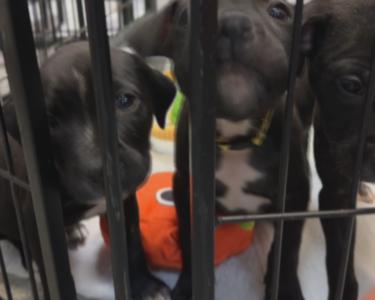
Imaginechina
The Supreme People’s Court, China’s top court, has released some sample cases related to the liability for injuries caused by domesticated animals, with the aim of fostering responsible pet ownership.
According to a white paper on the pet industry, the number of pet dogs in China’s urban areas reached 51.19 million in 2022.
The release of six typical cases aims to guide dog owners to develop a stronger sense of social and legal responsibility as well as comply with existing laws and regulations.
1. If banned large dogs injure people, the dog owners will be held liable, regardless of whether the injured parties were at fault.
According to China’s Civil Code, if dangerous animals, such as fierce dogs which are not allowed to be kept as pets, injure others, the owners will bear strict, no-fault liability.
Case:
An Alaskan Malamute scratched a 7-year-old child’s face in a residential area. Although the child initially interacted with the dog, the owner was found liable for the injury and ordered to pay compensation of more than 30,000 yuan (US$4,220) because Alaskan Malamutes are classified as large dogs that are prohibited from being raised in urban areas.
2. Dog owners will be held liable if they allow their minor children to walk dogs alone and the dogs harm humans.
Individuals under the age of 18 are prohibited from taking dogs out alone, as this can turn the dogs into “moving sources of danger.”
Case:
A 7-year-old child surnamed Ou was walking a black dachshund his parent owned and did not steer clear of other children. The dog scratched the left foot of an infant under 1 year old.
The dog owners, Ou’s parent, violated the local regulation that requires adults to hold the leash when outdoors and to keep the dog away from vulnerable groups.
The dog was confiscated, and the dog owner was ordered to pay 3,092 yuan to the injured infant’s family for medical and other expenses.
3. If dogs chase and frighten passersby and cause injury, the dog owners will be held liable.
Dogs can harm humans not only through direct physical contact such as biting or scratching, but also through non-contact behavior, such as barking, sniffing, or chasing, which can scare them.
Case:
Having been chased and frightened by an unleashed large dog, a man surnamed Zhang fell from his electric scooter and sustained a serious knee injury.
The local court ordered the dog owner to pay Zhang more than 210,000 yuan in compensation.
4. If dogs bite pregnant women, leading to the termination of their pregnancies, the dog owners will be held liable.
Under China’s Tort Law, there exists a causal relationship between receiving a vaccination after a bite and the termination of a pregnancy. The animal owner must compensate the victim.
Case:
A woman surnamed An was bitten by a dog and received a rabies vaccine for safety. She later realized she was pregnant at the time of the vaccination. Concerned about potential vaccine-induced harm to the fetus, she decided to terminate the pregnancy.
The court ordered the dog owner to compensate An for all damages resulting from the bite, including medical expenses, lost wages, and emotional distress, totaling 6,069 yuan.
5. If dogs cause damage, the dog owners bear responsibility.
Case:
A man surnamed Zhang fell from his motorcycle and sustained fractures after being chased by two dogs raised by a man surnamed Bao. Zhang demanded compensation for medical expenses, but Bao refused, claiming there was no evidence he owned the dogs.
Zhang then filed a lawsuit. Through mediation in court, with the involvement of deputies of the People’s Congress, Bao realized that he should bear the responsibilities associated with raising dogs and agreed to compensate Zhang.
6. Dog ownership that violates regulations is prohibited.
In China, regulations on dogs differ between cities. Generally, however, organizations and individuals in urban areas are required to register their dogs; each household can only have one dog; fierce and large breeds are prohibited; and dogs must be leashed in public spaces.
Case:
A man surnamed Wang runs a dry goods stall in a market, where he kept 11 dogs that were not registered nor on leashes.
The local public security authorities asked him to rectify his behavior, but Wang refused. Consequently, the authorities confiscated the unlicensed dogs.




